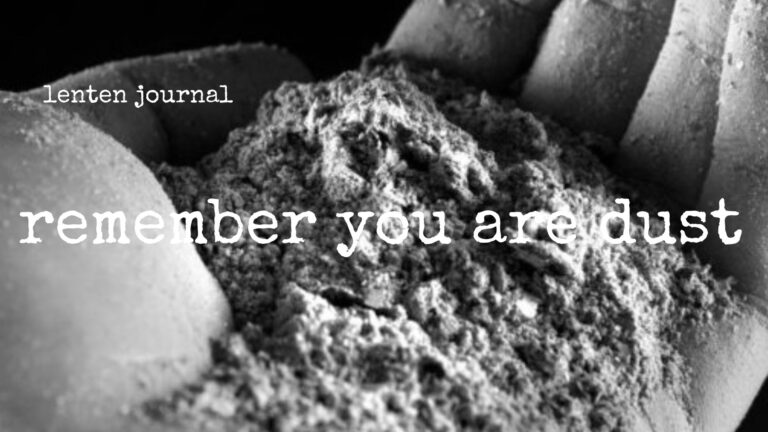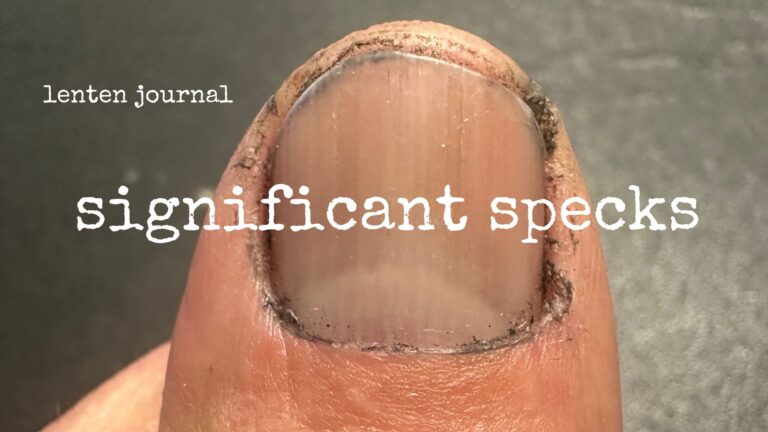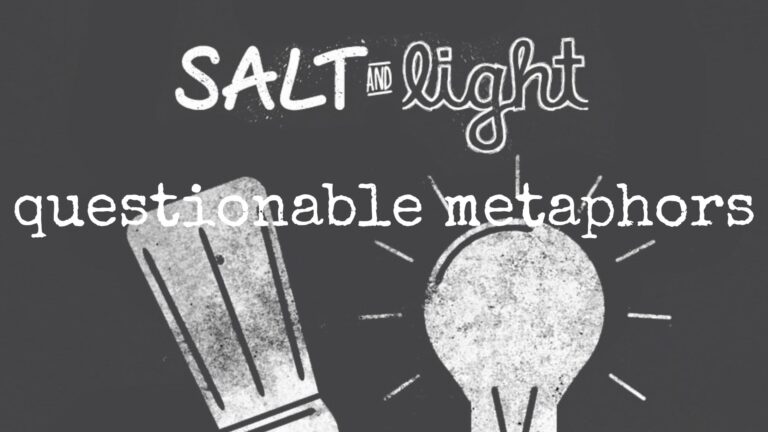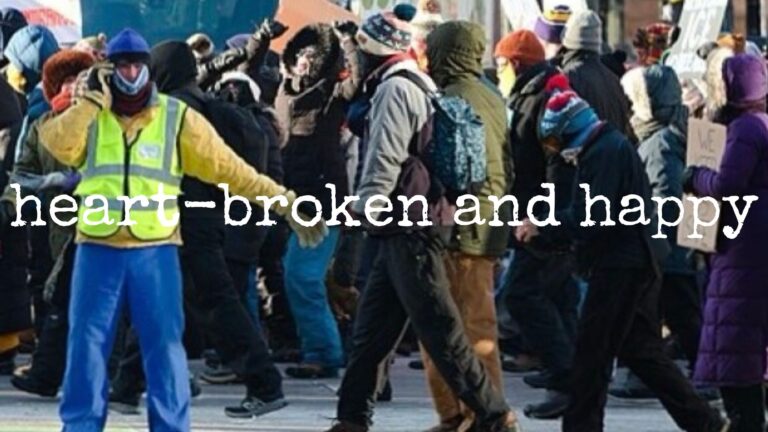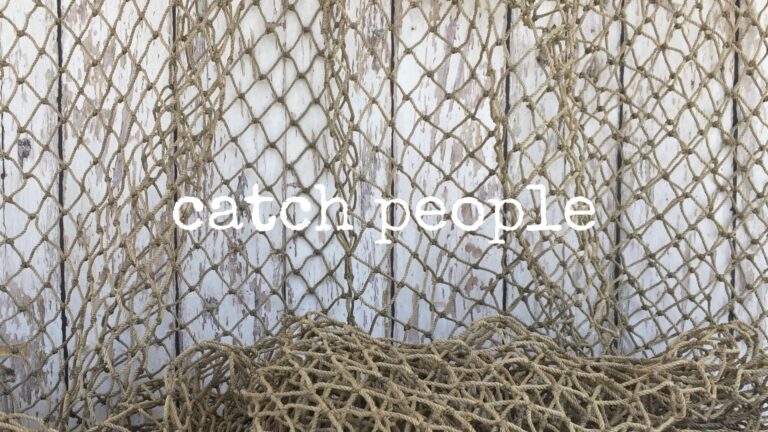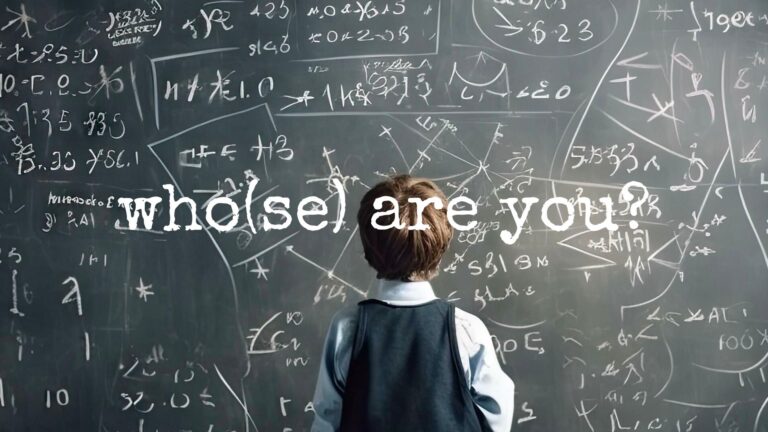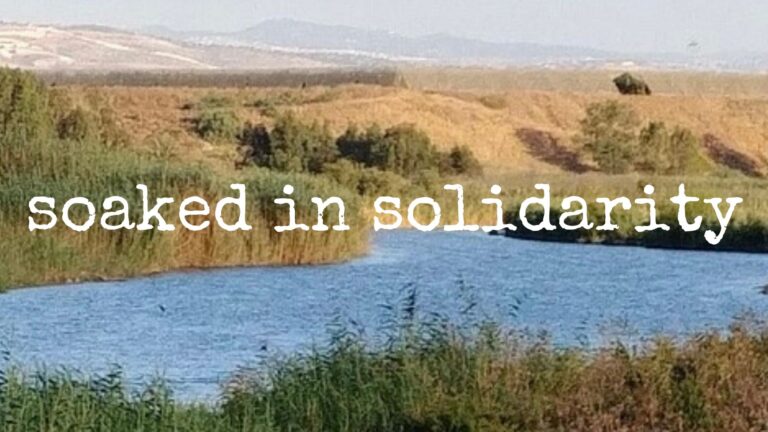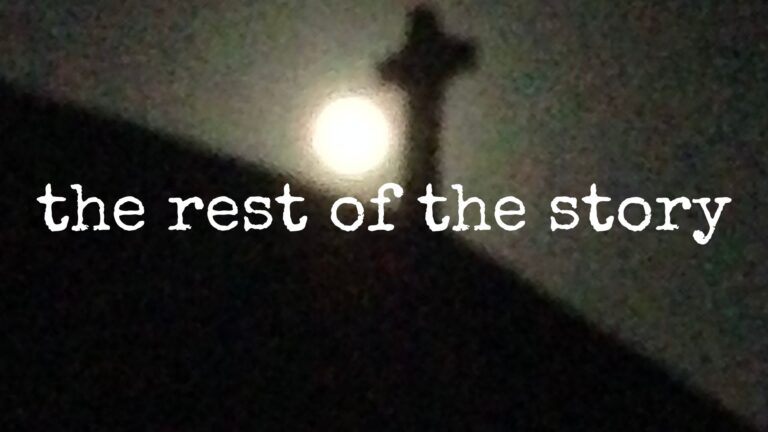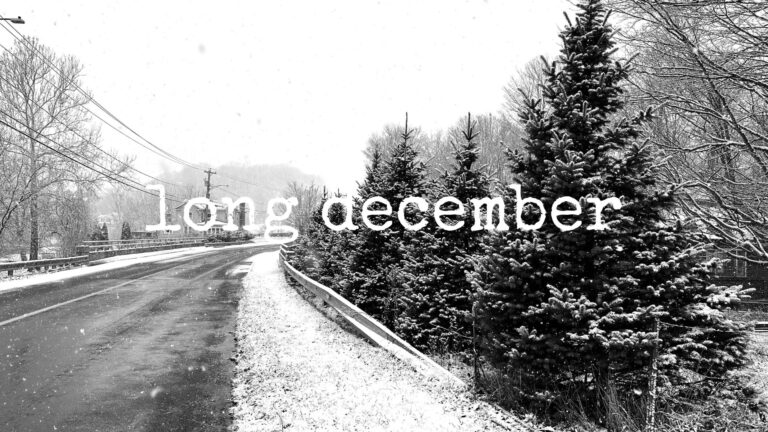Thanks to the winter storm that affected almost half the country, we had a virtual worship service once again this week. The verses from Matthew tell the story of Jesus calling some of his first followers, asking them to literally drop what they are doing and go catch people. Here is what I said.
_______________________
The more I read through these opening chapters of Matthew, and I see the speed and brevity with which he describes Jesus’ early life, the more I begin to realize Matthew is more concerned about making a bigger point about who Jesus was and what he was doing that he was about making sure we have a complete biography.
Matthew leaves out lots of stuff and makes huge transitions from one sentence to the next. In these first four chapters, Jesus was born, moved to Egypt, then back to Nazareth, went to the Jordan to be baptized by John, was tempted in the desert, moved from Nazareth to Capernaum, and now we find him calling those who would become his disciples.
At most every turn, Matthew finds ways to underline what the angel told Joseph: to name the child “God Is With Us.” That’s why every time Jesus moved to a new place Matthew mentioned that it fulfilled things the Hebrew prophets had said. It also gets echoed in the words Jesus heard at his baptism, that he was God’s beloved child in whom God found delight.
The other thing about these chapters is they also show how Jesus prepared (or was prepared) for his ministry, through his life experiences, his baptism, and the trials in the wilderness that challenged who he was and who he felt God was calling him to be. How he went from preparing to beginning to set things in motion swings on a sentence that goes by quickly:
“Now when John was arrested, Jesus went to Galilee . . .”
Some of the other gospel writers give us more details, but they all point to John’s arrest as some sort of call to action for Jesus. Matthew says that from that time Jesus began saying, “Change your hearts and lives. Here comes the reign of God,” which is almost word-for-word what John was saying when he called people to be baptized, as though he was carrying on something John had already started. Their relationship was at the heart of how Jesus came to a true sense of himself.
In turn, Jesus began to call others, one by one, to help him call people to step into their best selves, into a deeper relationship with God and with one another, because those two things always go together. To love God with our whole being means learning how to love one another as God’s beloved children.
When he heard John had been arrested, Jesus went to Galilee looking for help. He did not plan to work alone. The account of Peter and Andrew and then James and John just dropping their nets in the middle of a workday and walking off from jobs and family because Jesus said, “Follow me,” is a bit jarring and perhaps a bit difficult to imagine. Some commentators suggest they all knew each other and had been talking about it for a while. We don’t know for sure.
What intrigues me more is the offer Jesus made to these four who spent their lives fishing for, well, fish: “Come, follow me, and I’ll show you how to fish for people.”
Fishing in first century Galilee was hard work. They worked in little boats, throwing nets over the side and pulling them in to see what they had caught. They didn’t have any rods and reels. As we know from some of the other stories in the gospels, a good catch was not a given. Sometimes they fished all night and didn’t catch anything. And though the Sea of Galilee was small, it was known for its wicked storms. Fishing in those days was a job that demanded hard work and focus.
Keep holding that thought and let’s go back to John for a minute. As we talked about a couple of weeks ago, he called people to repent, to change their purpose, to refocus their lives on what mattered most because God wanted to work through them. Jesus got in line for that baptism as a way of saying he was focusing his life on who God was calling him to be.
Now Jesus was calling his fisher friends to change their life focus and work as diligently to fish for people—to help them find God—as they fished for fish every day. At the heart of it all is the reality that God’s realm, God’s ideal, comes not by some giant intervention but person to person, hand to hand, heart to heart, as we share the good news that we are wonderfully and uniquely created in the image of God and worthy to be loved.
Jesus was inviting his disciples to see that God’s realm was going to take place in the middle of their everyday relationships: the ordinary exchanges, passing words and glances, the things we do and say in the course of a day. Again, it’s Jesus’ name that gives us the clue: God Is With Us.
God is with us at work, at home, at school, at the grocery store when the line is too long, at the coffee shop when the person behind the counter struggles because English is not their first language, at work when we’ve had one too many Zoom calls for the day, at home when we feel too exhausted to talk. We could go on and on with examples, all of which are intended to remind us that God has called us to see and treat everyone as beloved children of God, as people of value, people worth catching in the name of God. Just as we are.
Jesus called Peter, Andrew, James, and John to look up from their nets and see the people who needed catching. Better said, Jesus told them to drop their nets and follow him and he would teach them how to see the people who needed catching, to be able to look beyond their circumstances and see all the others who needed to know God loved them, too.
I love the way one commentator put it:
“Jesus called ordinary people right in the middle of their ordinary lives to be in relationship with the ordinary people all around them and through them did extraordinary things.”
But he called them to make big changes. It wasn’t easy for those guys to walk away from family, from work, from what they knew to follow Jesus.
Yet the way Matthew tells the story, all four men dropped their nets and “immediately” went with him. They didn’t hedge their bets. They didn’t offer any qualifiers. They just went. They repented. They changed their purpose to see what God could do through and with them. They went fishing for people without really knowing what that was going to entail. They trusted God wholeheartedly and, as a result, helped to change the world. We are still telling their story.
God’s call on and in our lives may not seem quite so dramatic, but it is no less profound. We are called to focus our lives, first, doing what we need to do to share God’s love with them, to make sure they know they are loved, whoever they are, wherever we are. In big things, in small things, in intentional words and in passing comments, in things we plan and moments where we respond, we are called to embody the love of God in what we do and say so that God’s love can change the world.
My sermon was going to end there until I went to a memorial service today just before I recorded and something in the mix of the service made me think that rarely does life let us do just one thing or play just one role. We all have to multitask, to do more than one thing at once. I was reminded of that by a poem a friend sent early this morning by Karen Salmansohn:
the world is both burning and blooming
You get the bad news
and the sunrise in the same day.
then you laugh at a baby
wearing a hat shaped like a bear.
This is the dual citizenship
of being alive.
Rage and reverence,
Grief and grace.
You are allowed to feel both.
You are allowed to scream,
& still notice how good the soup is.
You don’t have to choose.
Let it all in.
None of us—even those who became Jesus’ disciples—get to walk away from the promises we have to keep. The disciples kept fishing, but Jesus’ call on their lives changed what mattered most. They cared less about their businesses than they did about connecting with people in a meaningful way.
That’s the call on our lives. We all have promises to keep and God calls us to remember nothing matters more than taking care of each other, and each other means anyone we come in contact with. Nothing matters more than people. Amen.
Peace,
Milton
